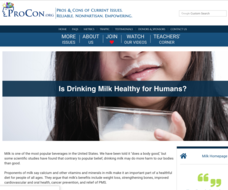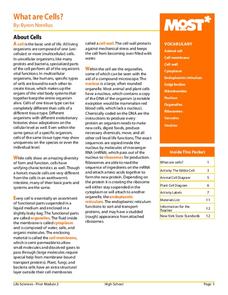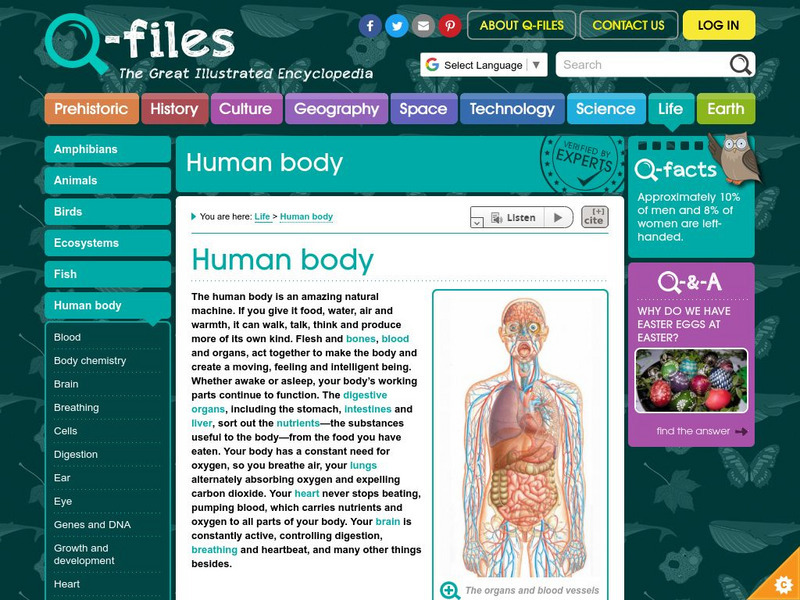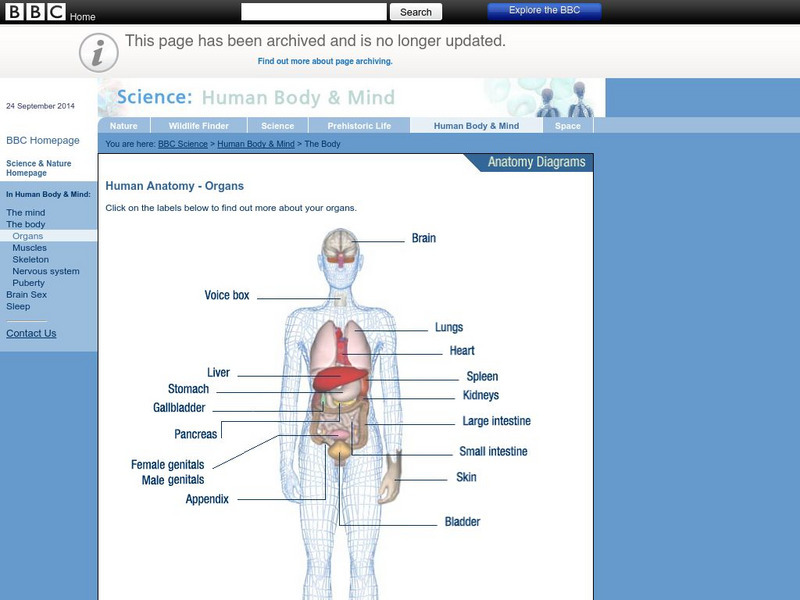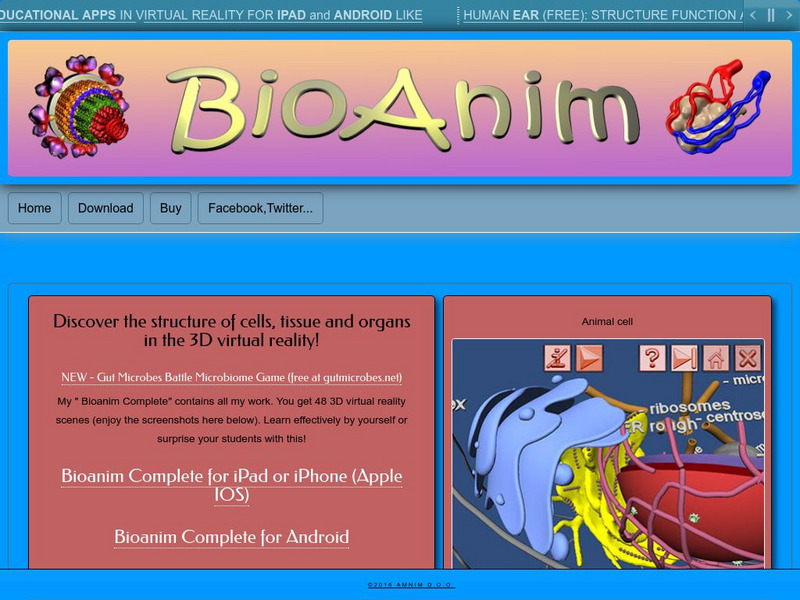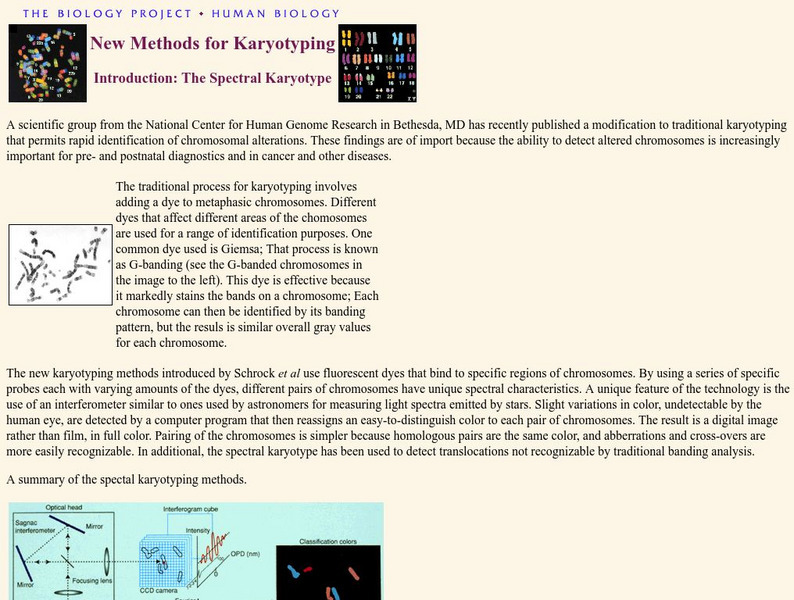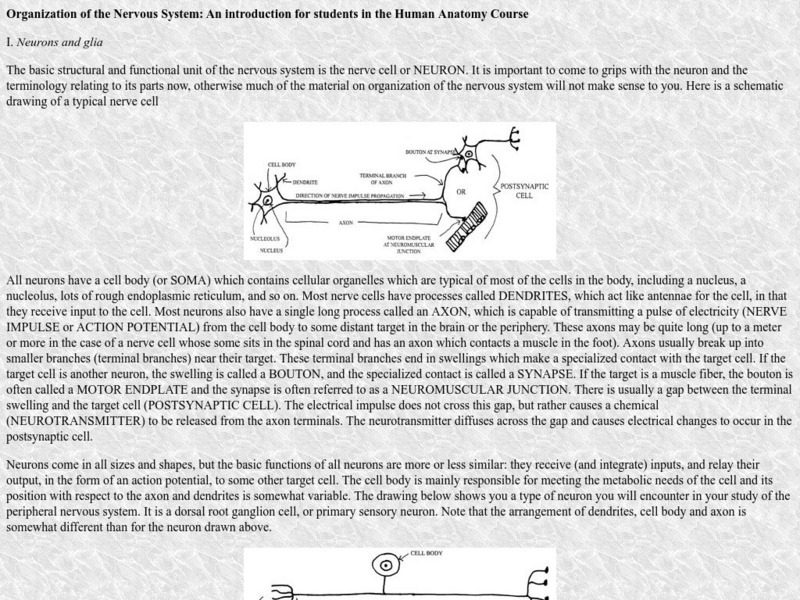It's About Time
Energy Flow in Ecosystems
Emerging biochemists more fully understand the flow of energy in ecosystems as they explore the laws of thermodynamics and relate them to energy transfer in food chains. They also investigate heat loss from the human body and how...
National Institute of Open Schooling
Radioactive Pollution
Radioactive pollutants can enter the body through ingestion, inhalation, absorption, or injection. The last lesson in a series of 36 introduces pupils to radioactive pollution. They study its sources, both natural and man-made, its...
American College of Sports Medicine
Selecting and Effectively Using Hydration for Fitness
How much water does your body lose during exercise? How much should you hydrate during and after exercise? Address the importance of hydration with your young athletes using this informative handout.
Towson University
Looking Into Lactase: Guided Inquiry
Milk does a body good ... unless, of course, someone is lactose intolerant. Pupils play the role of pharmaceutical scientists in a guided inquiry lab about lactase. Lab groups collaborate to learn more about lactose intolerance, how...
Scholastic
Heads Up: Real News About Drugs and Your Body
What's the difference between medical marijuana and marijuana bought on the street? Not much. High schoolers learn more about marijuana with an informational booklet that focuses on the medical uses of THC, how marijuana affects the...
US Department of Veterans Affairs
Sample Flexibility Plan for Beginners
Boost flexibility with a set of stretches designed for beginners. Pictures and descriptions guide readers through a variety of stretches while standing, sitting, and lying on the floor.
ProCon
Milk
Milk: It does a body good ... or does it? Using the provided website, scholars sort through information to answer the question. They review a chart demonstrating lactose intolerance by ethnicity and region, and they also compare the...
It's About Time
Run and Jump
Has your class wondered how fast a human could run or how high they are capable of jumping? Help them understand these concepts as they explore acceleration and use an accelerometer to make semiquantitative measurements of acceleration...
ProCon
Vegetarianism
What do Mike Tyson, Ellen DeGeneres, and Paul McCartney have in common? They're all famous vegetarians. Using the resource, scholars learn about the pros and cons of eating a vegetarian diet. They read a fascinating history of...
University of Texas
What Are Calories?
What are calories, and how do calorie needs differ from person to person? Here is a worksheet that briefly explains how calories measure the energy supplied by food, as well as suggests the amount of food an individual should eat per day.
Nemours KidsHealth
Male Reproductive System
Young pupils are introduced to the male reproductive system, the process of reproduction and conception through worksheets, discussion, and instructional guidance.
Curated OER
What Are Cells?
Energize the cells of young biologists with an edible life science activity. Engaging students in exploring the inner workings of plant and animal cells, this activity involves using colored jello and various sweet and...
Novelinks
Tuesdays with Morrie: Concept/Vocabulary Analysis
New to using Tuesdays with Morrie? Check out this five-page resource that provides an overview Mitch Albom's book, its features, themes, and literary devices. The packet also includes suggestions for research projects.
San José State University
MLA Formatting Guidelines: Ellipsis for Omissions
If you would like a concise overview of MLA formatting, this two-page handout provides it. It addresses page layout, parenthetical citations, and works cited (including when and how to use ellipses to indicate an omission), but it does...
BBC
Bbc: Human Anatomy: Organs
Explore the anatomy of the human body. Click on an organ or other body part to read more about its structure and function, and then try out an interactive activity for that organ.
Georgia State University
Georgia State University: Hyper Physics: Temperature Regulation of the Human Body
Discusses the methods the human body uses to regulate body temperature. Includes links to the four external heat transfer mechanisms (radiation, conduction, convection, and evaporation of perspiration).
CK-12 Foundation
Ck 12: Biology: Human Body: Organization Study Guide
This comprehensive study guide covers the main terms and concepts needed for a unit on the organization levels in the human body from organ systems to cells.
Other
Bio Anim
BioAnin presents 3-D labeled images of all of the major systems of the human body, for example, the digestive system and the endocrine system. The images are embedded in slideshows. The site also has interactive 3-D models that can be...
Khan Academy
Khan Academy: Tissues, Organs, & Organ Systems
Describes the main tissue types and organ systems of the body and how they function together.
University of Arizona
The Biology Project: Human Biology: New Methods for Karyotyping
Read about the findings from the scientific group from the National Center for Human Genome Research, which published a modification to traditional karyotyping that permits rapid identification of chromosomal alterations.
Emory University
Emory University: Human Anatomy: Organization of the Nervous System
Describes the different parts of the nervous system and how it is organized.
Exploring Nature
Exploring Nature Educational Resource: 4 Basic Tissue Types in the Human Body
Facts about four basic types of tissues in the human body and their functions.
Ducksters
Ducksters: Biology for Kids: Muscles in the Human Body
Kids learn about the science of muscles in the human body. How we move and get around.
Other popular searches
- Human Body Parts Pictures
- Human Biology
- Human Body Anatomy
- Human Body Systems
- Human Body Parts
- Human Body Systems Diagram
- Human Anatomy
- Human Body Bones
- Human Body Anatomy Sketching
- Human Body System Handouts
- Human Biology Organ Systems
- Human Body Grade 2






